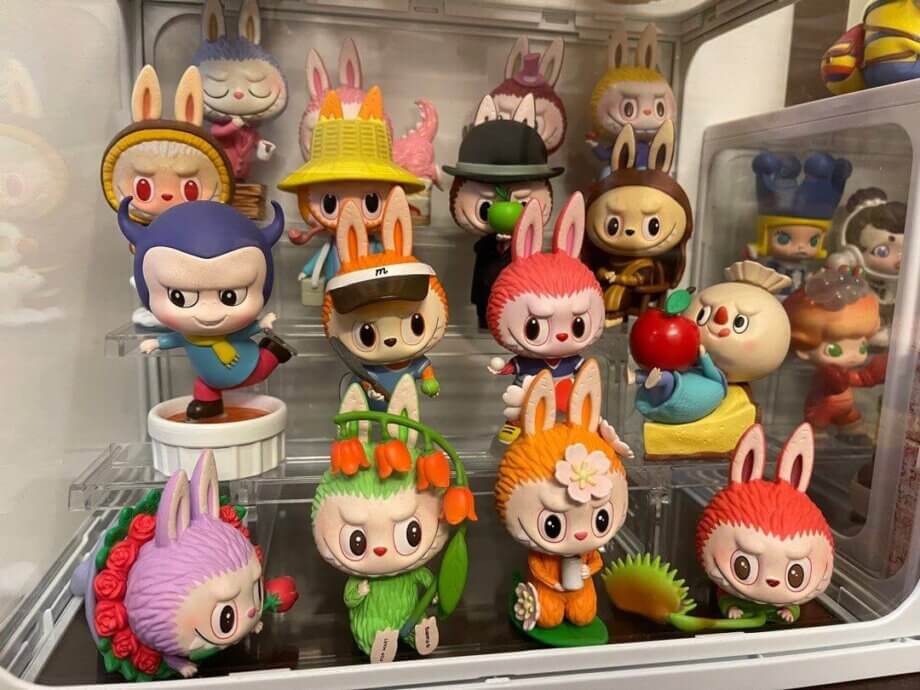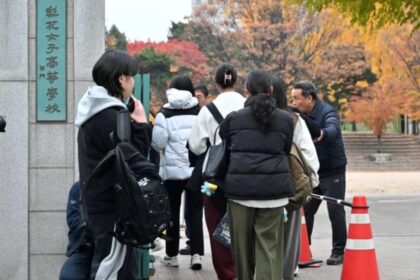The Labubu Phenomenon: How a Snack-Themed Doll Sparked a Frenzy in Singapore
On June 28, 2025, the launch of the snack-themed Labubu dolls at Pop Mart’s Ion Orchard store in Singapore drew a crowd of around 160 eager fans, some arriving before dawn. This event was not just another product release—it was a cultural moment that highlighted the growing obsession with collectible designer toys in Singapore and across Asia. The Labubu craze, fueled by limited editions, social media hype, and a thriving resale market, has transformed a quirky monster character into a sought-after icon. But what exactly is Labubu, and why has it captured the hearts (and wallets) of so many?
- The Labubu Phenomenon: How a Snack-Themed Doll Sparked a Frenzy in Singapore
- What Is Labubu? Origins and Rise to Fame
- The Monsters Wacky Mart Series: A Snack-Inspired Sensation
- Launch Day at Ion Orchard: Queues, Hype, and Community
- The Blind Box Model: Surprise, Scarcity, and the Thrill of the Hunt
- The Resale Market: Hype, Profits, and Pitfalls
- Labubu’s Cultural Impact in Singapore
- Challenges: Legal Disputes, Customs, and the Cost of Fandom
- How to Join the Labubu Craze: Tips for Collectors
- Labubu’s Place in Singaporean Culture: More Than Just a Toy
- In Summary
What Is Labubu? Origins and Rise to Fame
Labubu is a mischievous, sharp-toothed, fluffy-eared character created by Hong Kong artist Kasing Lung. First introduced in 2015 as part of “The Monsters” story series, Labubu quickly gained popularity for its whimsical design and playful personality. The character’s rise to global fame accelerated after Pop Mart, a Chinese toy company specializing in designer collectibles, began producing Labubu figures as part of its Monsters lineup in 2019.
Labubu’s appeal lies in its unique blend of cuteness and quirkiness, making it a favorite among both casual fans and serious collectors. The toy’s popularity has been further boosted by celebrity endorsements—most notably, K-pop star Lisa from Blackpink and international icons like Rihanna and Dua Lipa have been spotted with Labubu figures, turning the character into a fashion and lifestyle statement.
In Singapore, Labubu has become a cultural phenomenon. The dolls are seen dangling from backpacks, displayed on office desks, and even featured in political events. The People’s Action Party (PAP) Sengkang team once introduced a PAP-themed Labubu doll during a community drive, underscoring the toy’s broad appeal.
The Monsters Wacky Mart Series: A Snack-Inspired Sensation
The latest Labubu collection, known as The Monsters Wacky Mart Series, reimagines the character as a variety of Japanese convenience store snacks. The series includes 12 main designs—such as fried shrimp, corn on the cob, cup noodles, yakitori, and onigiri—plus a rare 13th edition shaped like a microwave oven, which is found in only one out of every 144 blind boxes. Each figure is sold in a blind box for S$15.90, or S$190.80 for a full set of 12, adding an element of surprise and excitement to the collecting experience.
Beyond the figures, the collection features a range of lifestyle items: a fluffy tempura shrimp AirPods case (S$24.90), a chips-shaped pillow, a sardine can messenger bag, and fridge magnet blind boxes. The playful designs and limited availability have made these items instant hits, with some—like the AirPods case—selling out within hours and appearing on resale platforms at double or triple the retail price.
Why the Snack Theme?
The snack theme taps into a sense of nostalgia and everyday comfort, reminiscent of browsing a Japanese konbini (convenience store). This clever twist not only appeals to foodies and pop culture enthusiasts but also keeps the Labubu brand fresh and relevant. The tactile finishes—like fluffy corn silk or magnetic sandwich bread—add to the collectible’s charm and perceived value.
Launch Day at Ion Orchard: Queues, Hype, and Community
The June 28 launch at Ion Orchard was a testament to Labubu’s cult status. Fans began queuing as early as 5:30 a.m., with some bringing foldable chairs and portable fans to endure the wait until the store opened at 10 a.m. The 100th ticket was issued by 8:45 a.m., and by 11:30 a.m., everyone in line had been allowed inside. Most left clutching bags filled with merchandise, their efforts rewarded after hours of anticipation.
Sarah C, a 25-year-old microbiology student and seasoned collector, was first in line. She explained her dedication simply: “It’s Labubu; it’s going to be popular.” For many, the experience is about more than just acquiring a toy—it’s about being part of a community, sharing tips, and helping friends or family secure coveted items. Some fans even queue on behalf of others, highlighting the collaborative spirit that has emerged around the craze.
The excitement was palpable, especially for the limited-edition AirPods case, which sold out by 11:30 a.m. and quickly appeared on resale sites like Taobao for S$80–S$90, far above its original price. By 2:20 p.m., all figurines were sold out, underscoring the intense demand and the effectiveness of Pop Mart’s marketing strategy.
The Blind Box Model: Surprise, Scarcity, and the Thrill of the Hunt
One of the key drivers behind Labubu’s popularity is the blind box model. Each box contains a random figure, and buyers do not know which design they will get until they open it. This element of surprise, combined with the possibility of pulling a rare or secret edition, fuels repeat purchases and trading among collectors.
The scarcity of certain designs—like the 1-in-144 microwave oven Labubu—creates a sense of urgency and exclusivity. Collectors often buy multiple boxes or even entire cases in hopes of completing their sets or finding the rarest figures. This model has proven highly effective in driving both sales and social media buzz, as fans share their “unboxing” experiences and trade duplicates within the community.
The Resale Market: Hype, Profits, and Pitfalls
The limited nature of Labubu releases has given rise to a robust secondary market. Popular items often sell out within hours, only to reappear on resale platforms at inflated prices. The AirPods case from the Wacky Mart series, for example, was listed for up to S$90 on Taobao—nearly three times its retail price.
This dynamic has led to both excitement and frustration among fans. While some see the resale market as an opportunity to profit or obtain hard-to-find items, others lament the difficulty of securing products at retail prices. The intense demand has even sparked brawls at overseas launches, prompting Pop Mart to temporarily pause sales in some locations, such as the UK.
Counterfeits and Consumer Risks
With popularity comes the risk of counterfeiting. Reports of fake Labubu dolls have surfaced in Singapore and beyond, with some buyers paying hundreds of dollars for what turned out to be counterfeit products. In one case, a woman who transferred S$220 for a first-generation Labubu was shocked to discover it was a fake, leading to a police report and highlighting the challenges of navigating the secondary market.
Pop Mart has responded by urging fans to purchase only from official channels and to report unauthorized use of Labubu’s likeness. The company has also taken legal action against businesses selling unlicensed Labubu-themed products, particularly in the food and beverage sector, to protect its intellectual property and brand reputation.
Labubu’s Cultural Impact in Singapore
Labubu’s influence extends far beyond the toy aisle. The character has inspired a wave of Labubu-themed products, from food items to fashion accessories, and has become a fixture in Singapore’s pop culture landscape. Supermarkets like Giant Tampines Hypermarket have even installed Labubu-themed claw machines, allowing fans to try their luck at winning a figure for a fraction of the retail price.
The community aspect is equally significant. Social media groups, collector meet-ups, and trading events have sprung up, fostering connections among fans of all ages. The appeal is not limited to children or teenagers; adults, parents, and even seniors have joined the craze, often collecting on behalf of loved ones or as a shared family activity.
Labubu’s popularity has also intersected with local politics and charity. The aforementioned PAP-themed Labubu doll made an appearance at a senior citizen grocery drive, demonstrating the character’s versatility as a symbol of community and goodwill.
Challenges: Legal Disputes, Customs, and the Cost of Fandom
The Labubu craze has not been without controversy. The proliferation of counterfeit goods has raised concerns about consumer protection and the integrity of the marketplace. Pop Mart has been vigilant in pursuing legal action against unauthorized sellers and counterfeiters, emphasizing the importance of buying from official sources.
Customs regulations have also come into play. In one high-profile case, a woman was fined S$5,000 and had to pay over S$3,900 in Goods and Services Tax (GST) after failing to declare Labubu dolls brought into Singapore from overseas. This incident serves as a reminder that the cost of fandom can extend beyond the price tag, encompassing legal and regulatory considerations as well.
How to Join the Labubu Craze: Tips for Collectors
For those looking to start or expand their Labubu collection, here are some practical tips:
- Buy from Official Channels: Purchase from Pop Mart’s official stores, authorized retailers, or reputable online platforms to avoid counterfeits.
- Stay Informed: Follow Pop Mart and collector groups on social media for updates on new releases, restocks, and events.
- Plan Ahead: For major launches, be prepared to queue early or participate in online drops as soon as they go live.
- Network with Other Collectors: Join local collector communities to trade duplicates, share tips, and stay connected.
- Be Cautious with Resale: If buying from the secondary market, verify the authenticity of the product and the reputation of the seller.
- Understand Customs Rules: If importing Labubu dolls, declare them properly to avoid fines and additional taxes.
Labubu’s Place in Singaporean Culture: More Than Just a Toy
Labubu’s success in Singapore reflects broader trends in consumer culture, where collectibles, nostalgia, and social media converge to create powerful fads. The character’s journey from a niche designer toy to a mainstream icon illustrates the power of branding, storytelling, and community engagement.
For many, Labubu is more than just a toy—it’s a symbol of creativity, playfulness, and connection. Whether displayed on a shelf, carried as a keychain, or shared as a gift, Labubu brings joy and a sense of belonging to its fans. The challenges of counterfeiting, legal disputes, and regulatory hurdles are real, but they have not dampened the enthusiasm of Singapore’s Labubu community.
In Summary
- The launch of the snack-themed Labubu dolls at Pop Mart’s Ion Orchard store drew massive crowds, highlighting the character’s popularity in Singapore.
- Labubu, created by Kasing Lung, has become a global collectible icon, with celebrity endorsements and a strong community following.
- The Monsters Wacky Mart Series features Labubu as various Japanese convenience store snacks, with blind box sales fueling excitement and scarcity.
- Limited editions and the blind box model drive demand, leading to long queues, rapid sellouts, and a thriving resale market.
- Counterfeiting and unauthorized use of Labubu’s likeness have prompted legal action and consumer caution.
- Labubu’s cultural impact in Singapore extends to food, fashion, politics, and community events, uniting fans of all ages.
- Collectors are advised to buy from official sources, stay informed, and be mindful of customs regulations and resale risks.
- Labubu’s story is a testament to the enduring appeal of designer toys and the vibrant communities that form around them.












